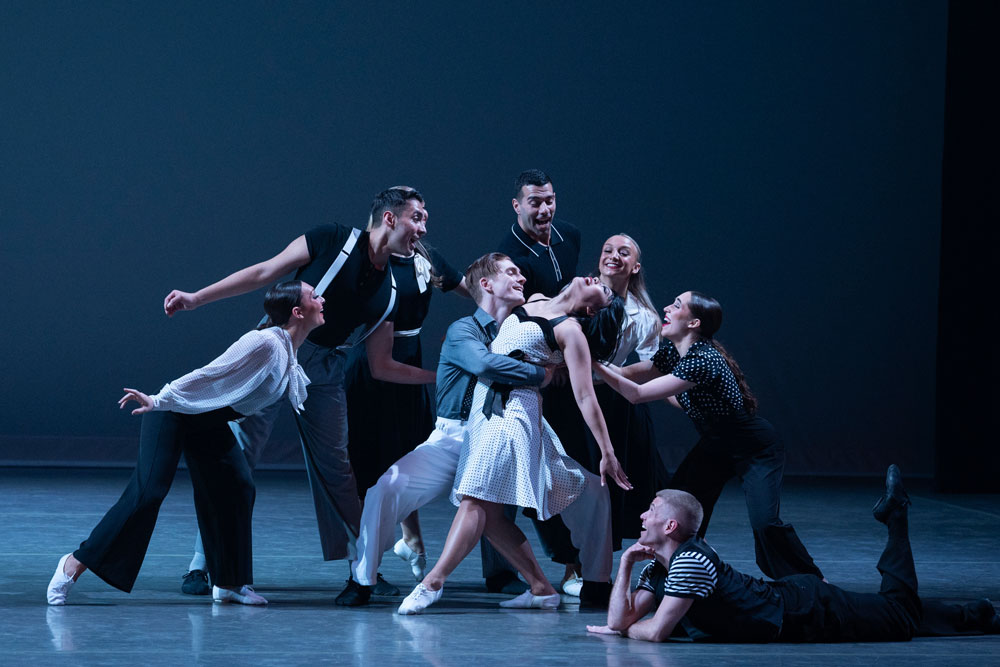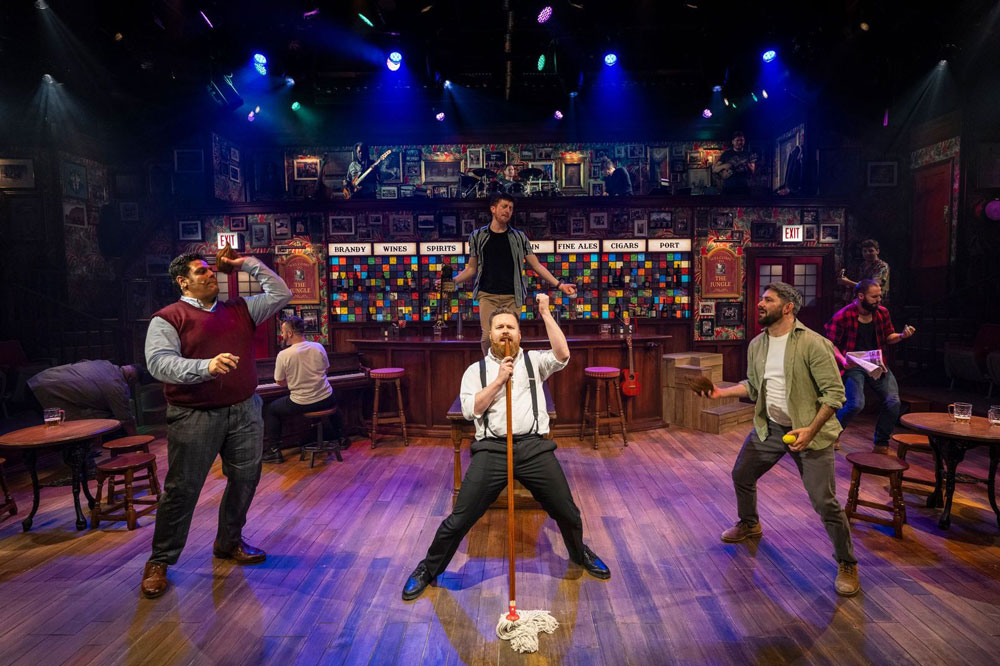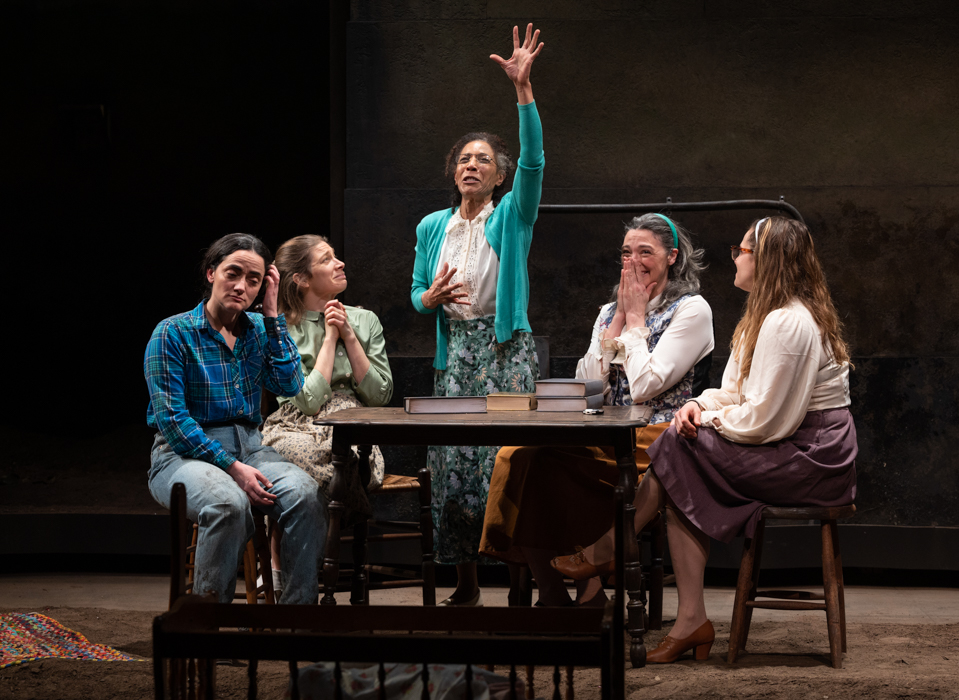
No matter how universal a story is, place can be as important as the story’s people. Caryl Churchill’s Fen takes us to a part of the United Kingdom whose existence is virtually unknown beyond the British Isles. On England’s eastern coast, the Fenlands, before being developed, were over 1000 square miles of wetlands. Soaked by freshwater rivers and completely inhospitable to agriculture, they were dismissed as wastelands that didn’t even warrant deeding rights. Shared communally, the people who lived in them walked on stilts to stay above the water, ate fish and eel for survival and used the peat they dug up to sell and burn as fuel. It was an existence that forged a unique character of self-reliance and endurance.
Churchill’s tale takes place more than 400 years after King Charles I, finding himself in want of cash, listened to his advisors and went into land development. A heavy-handed monarch who was eventually executed following a civil war he provoked, Charles’ decision to drain the Fenlands in the 1600s is still reverberating in the modern England. Churchill takes us to the Fen of the 1980s and opens on a note of thriving. A businessman (Alex Goodrich) stands center stage boasts about the profits his company is reaping from the land. His air is both forthright and smug as he recounts other businesses similarly flourishing. Britain saw staggering economic change during the period. Like the United States at that time, the cult of me ran rampant and the pursuit of prosperity was obsessive. The 80s were also the years of Margaret Thatcher who oversaw the widespread privatization of both industries and public services. Many won, but Fen is about the people who lost. It’s their lives that Churchill and director Vanessa Stalling peel back to show how progress in one light reads as bleak despair in another.
Hardly a straightforward story, Fen requires some investment. Without a modicum of understanding of the region’s history, you can’t fully absorb the basis for the desperation so many of the characters in the play feel. They’re stuck in a cycle they can’t seem to break. By the time we meet these descendants of the original Fenlands, generations of them have seen their lives repurposed. Harvesting crops under the supervision of gangmasters on land they don’t own, their futures are as empty as their pockets. Val (Cruz Gonzalez-Cadel), married with two young daughters, knows she’s on the wrong end of the game. In a work gang made up entirely of women, she and they revile their existence. She wants to leave the Fenlands and travel the 70 miles to London and start a new life.
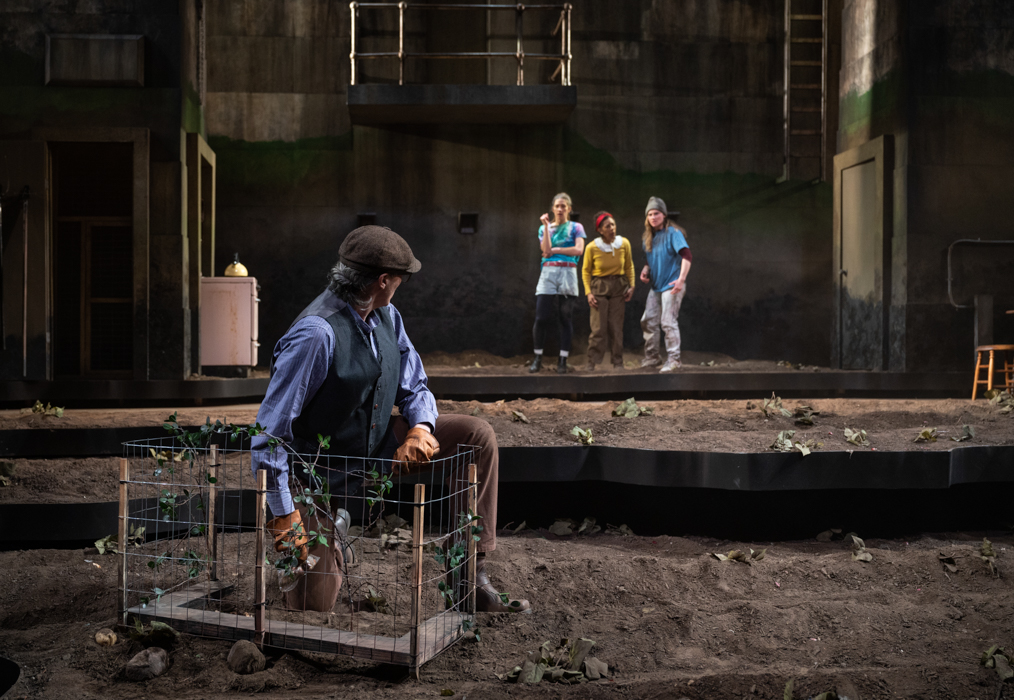
Most of the action takes place on the front half of the stage that’s been transformed into a landscape of dry earth. Representing the depleted present of the Fen, its barrenness is like a pall hanging over the play, sapping it of hope. Fortunately Churchill’s writing can be both witty and perceptive which at least hint at unexpected possibilities.
Because Fen doesn’t have an easy flow, how the characters respond to one another and how they react to events are crucial to our engaging with them and their plights. Some of the actors play as many as three to four characters which can make adapting to their transitions challenging. A few proved particularly adroit at sliding between radically divergent roles. Lizzie Bourne, Morgan Lavenstein and Genevieve VenJohnson were all exceptional as they morphed from one character to another.
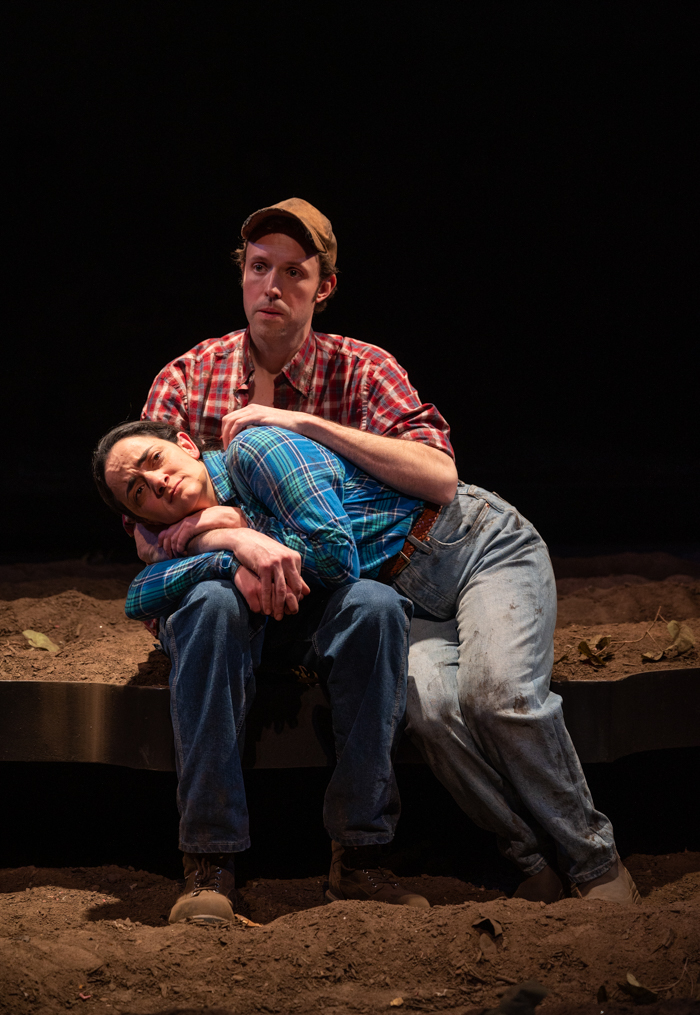
Most perplexing though was the lead role. Val was contemplating a monumental change in her life. She understandably hungered to leave her repressive life in the Fenlands. But she also wants to leave with her lover, Frank (Alex Goodwich); who, like her, was married and a parent. Intimate relationships by their nature can be and often are inexplicable. Outsized passion and unbridled trust are just two of the many things that can make love blind. But when Val and Frank are together, there’s little hint why their commitment to each other is so strong. Part of the reason is built into the play. He doesn’t see a life he can make for himself in London. Hesitancy often dogs his words and his desire seems almost fragile next to hers. The sacrifices they make to eventually be together ultimately dwarf the satisfaction they hoped to gain.
A woman centered production, other relationships and characters in Fen are perhaps more engrossing. Nell (Elizabeth Laidlaw), vocal in her discontent about the lack of fairness in their lives and quick to defend her friends, speaks truth to power with cool defiance. A straight backbone and a sharp tongue cause her to appear formidable. But it’s the way she carries her sexual ambiguity that makes you question the stamina of her inner-stoicism.
Angela (Morgan Lavenstein) all but chortles as she drips malicious abuse on her adolescent child, Becky (Lizzie Bourne). When she tells her daughter, “I don’t want you to like me” after one of her more merciless taunts, you can taste her psychosis. As Angela, Lavenstein brings an energy that’s fierce and toxic. Switching to her role as Alice, someone who finds succor in religion, Lavenstein personifies the iron forged sincerity of faith. That we’re left to perceive that faith as folly is dampened by the level of conviction Lavenstein steeps into her characterization of Alice.
Focusing on women changes what’s emphasized in lives restricted by the realities of where they are. By lifting the veil and showing the degree of damage stifled lives can wreak in women, Churchill completes an unfinished picture of the collateral cost of caste.
Fen
February 10 – March 5, 2023
Court Theatre
5535 S. Ellis Avenue
Chicago, Il 60637

